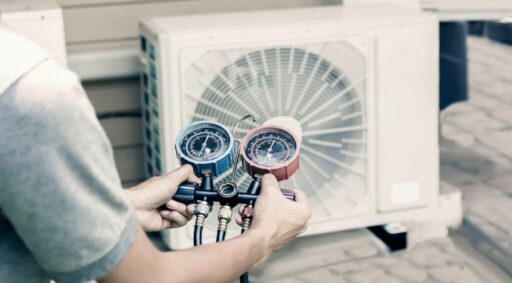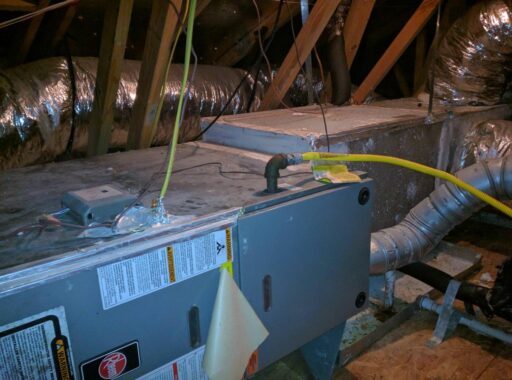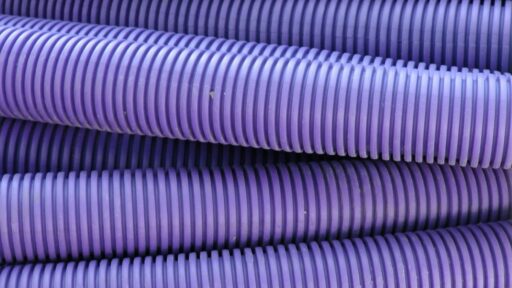The plumbing, heating, and cooling industry is undergoing a significant transformation, driven by technological advancements, a focus on sustainability, and evolving customer expectations. The Plumbing, Heating, Cooling Contractors Association (PHCC) is at the forefront of this change, providing valuable insights into how professionals in the trade can adapt and thrive. This article delves into the latest industry trends, professional development opportunities, customer service improvements, eco-friendly practices, and business strategies that are shaping the future of plumbing and HVAC services.
Key Takeaways
- Emerging technologies, such as advanced leak detection methods and smart home integrations, are revolutionizing plumbing and HVAC services.
- The PHCC is championing professional development through updated training programs, certification, and networking opportunities.
- Enhanced customer experience is a priority, with the implementation of feedback systems and a focus on quality service and follow-ups.
- Sustainability initiatives and eco-friendly practices are becoming increasingly important, with water conservation and energy-efficient solutions leading the way.
- Businesses in the trade are navigating a dynamic market landscape by adapting to consumer demands, optimizing pricing strategies, and building a robust online presence.
Innovations in Plumbing and HVAC Services

Emerging Technologies in Leak Detection
The plumbing industry is witnessing a revolution in leak detection methods, with innovative technologies enhancing accuracy and speed. Infrared thermal imaging stands out as a non-invasive technique that identifies temperature variations, pinpointing leaks behind walls and ceilings. Acoustic leak detection is another breakthrough, utilizing sound technology to detect the noise created by escaping water, even through layers of construction material.
- Infrared Thermal Imaging: Detects temperature discrepancies.
- Acoustic Leak Detection: Identifies leak sounds.
- Moisture Sensors: Monitor humidity levels.
These advancements not only improve the detection process but also minimize property damage during inspections. The integration of smart sensors into plumbing systems is paving the way for proactive leak prevention, alerting homeowners to potential issues before they escalate.
Embracing these technologies is crucial for plumbing professionals to stay ahead in a competitive market, ensuring they can offer quick and effective solutions to their clients.
Advancements in HVAC Efficiency
The HVAC industry is witnessing a significant transformation with the introduction of high-efficiency systems designed to reduce energy consumption and lower utility bills. Innovative HVAC solutions are now capable of achieving unprecedented levels of energy efficiency, which is not only beneficial for the environment but also for the consumer’s wallet.
Recent developments include multi-stage and modulating furnaces, which offer precise temperature control and operate at lower capacities for longer periods, resulting in quieter operation and reduced energy usage. Additionally, the integration of smart thermostats and zoning systems allows for more refined control over heating and cooling, further enhancing efficiency.
The integration of advanced diagnostics and predictive maintenance can lead to a significant reduction in downtime and repair costs, ensuring that HVAC systems operate at peak efficiency.
To illustrate the impact of these advancements, consider the following table showing the comparison of traditional and high-efficiency HVAC systems over a year:
| System Type | Average Energy Use (kWh) | Average Cost Savings (%) |
|---|---|---|
| Traditional | 15,000 | 0 |
| High-Efficiency | 10,000 | 33 |
The importance of specialized services, such as custom installations and tailored maintenance plans, cannot be overstated in ensuring that these advanced systems deliver their full potential in energy savings.
Smart Home Integration for Plumbing and Heating Systems
The integration of smart home technology with plumbing and heating systems is revolutionizing the way homeowners manage their domestic environments. Smart thermostats, leak detectors, and automated shut-off valves are just a few examples of how connectivity is enhancing system efficiency and providing peace of mind.
- Smart Thermostats: Allow precise temperature control and can learn homeowner’s preferences.
- Leak Detectors: Provide real-time alerts to prevent water damage.
- Automated Shut-Off Valves: Can automatically cut water supply in case of a detected leak, minimizing potential damage.
The seamless interaction between smart devices and home systems is not only convenient but also contributes to significant energy savings and improved safety measures.
The adoption of these technologies is also fostering a new wave of service opportunities for contractors. They must now be adept in both traditional plumbing and heating skills as well as the nuances of smart home ecosystems. This dual expertise is becoming a valuable asset in the industry, setting apart professionals who can offer comprehensive solutions to modern homeowners.
Enhancing Professional Development

Training Programs for Modern Plumbing Techniques
The plumbing industry is rapidly evolving, and with it, the need for continuous professional development is more critical than ever. Training programs are essential for equipping professionals with the latest techniques and technologies in modern plumbing. One such program is the ‘Online Foundations of Plumbing‘ from Aims Community College, which offers a comprehensive self-paced course designed by industry experts.
The curriculum covers a wide range of topics, from basic plumbing principles to advanced system designs. Participants can expect to gain hands-on experience through virtual simulations and interactive modules. This approach ensures that plumbers are not only knowledgeable but also adaptable to the ever-changing landscape of the trade.
Emphasizing practical skills and theoretical knowledge, these training programs bridge the gap between traditional plumbing methods and cutting-edge practices.
Upon completion, professionals are better prepared to tackle complex projects, implement efficient solutions, and ultimately drive innovation within the industry.
Certification and Continuing Education Opportunities
In the dynamic field of plumbing and HVAC, professionals must stay abreast of the latest standards and practices. Certification programs are essential for demonstrating expertise and commitment to quality. These programs often require practitioners to complete a set of courses and pass an examination to earn their credentials.
Continuing education is another pillar for maintaining excellence in the trade. It ensures that contractors are up-to-date with the latest techniques, technologies, and safety regulations. Many associations offer a variety of courses, ranging from technical skills to business management.
The pursuit of excellence in plumbing and HVAC is a continuous journey, marked by ongoing learning and professional development.
For contractors looking to highlight their qualifications, a strong online presence is beneficial. A website page featuring the best contractors in various categories can serve as a testament to their skills and reliability. This not only helps in building trust with potential clients but also showcases their commitment to maintaining high standards in the industry.
Networking Events and Trade Shows
The Plumbing, Heating, Cooling Contractors Association (PHCC) provides a robust platform for professionals to connect and share knowledge through various networking events and trade shows. These gatherings are essential for staying abreast of industry trends, discovering new products, and forging valuable partnerships.
- Annual PHCC Trade Show: A showcase of the latest innovations and services.
- Regional Conferences: Opportunities for localized professional development and networking.
- Webinars and Workshops: Interactive sessions focusing on specific industry challenges.
Networking events serve as a catalyst for professional growth and are a cornerstone in maintaining the vitality of the plumbing and heating industry.
Attending these events can lead to collaborative ventures and a deeper understanding of the market. The PHCC is committed to excellence and advancing the industry, which is reflected in the quality and variety of events organized.
Improving Customer Experience

Implementing Customer Feedback Systems
In the pursuit of excellence, plumbing and HVAC companies are increasingly recognizing the importance of customer feedback. Implementing robust feedback systems is crucial for businesses to understand client needs and improve service quality. These systems can range from simple comment cards to sophisticated online platforms that allow for real-time responses.
To ensure that feedback is effectively gathered and utilized, companies should consider the following steps:
- Establish clear channels for feedback collection, such as online forms, email surveys, or phone hotlines.
- Analyze feedback for common trends and areas of improvement.
- Communicate with customers to acknowledge their feedback and outline any steps taken to address their concerns.
- Regularly review and refine the feedback process to adapt to changing customer expectations.
By prioritizing customer feedback, businesses not only enhance their service offerings but also foster a culture of transparency and continuous improvement.
However, it’s important to note that while feedback is invaluable, companies should provide clear communication to customers, indicating that while all feedback is considered, not all suggested changes will be implemented. This sets realistic expectations and maintains a constructive dialogue between the service provider and the customer.
Guaranteeing Quality Service and Follow-ups
Ensuring customer satisfaction is paramount in the plumbing and HVAC industry. Our mission is simple: to guarantee that every project is executed with precision and timeliness. We believe in working closely with each customer, understanding their unique needs to provide a service level that goes beyond expectations.
Our commitment to quality is reflected in our follow-up procedures, which are designed to address any concerns and ensure the longevity of our work. We have established a systematic approach to follow-ups, which includes:
- Immediate post-service feedback to gauge customer satisfaction
- Scheduled check-ins to ensure systems are functioning optimally
- Swift response to any additional service requests or issues
Our integrity is the core of our business values, and we consistently deliver high-quality workmanship that reflects our dedication to excellence.
Additionally, we have introduced a new feature on our website to enhance the customer experience further. A dedicated page now showcases the best contractors in various categories, including building, construction, general, and residential. This resource is invaluable for customers seeking the best service providers, such as finding the top general contractor in Seminole County, FL.
Case Studies: Transforming Service Delivery
The Plumbing, Heating, Cooling Contractors Association has been instrumental in showcasing how customer service can be revolutionized through strategic changes. Case studies from various contractors reveal a pattern of success when customer feedback is actively incorporated into service delivery.
One notable example is the transformation seen in Transblue, where communication was established as the cornerstone of client satisfaction. This approach led to a promise of excellence that was not only made but also fulfilled, as evidenced by the positive client testimonials.
In the realm of plumbing and HVAC, the commitment to customer experience is paramount. Contractors who excel in this area often see a marked improvement in client retention and referrals.
Another case study highlighted the importance of a strong online presence. A website page featuring the best contractors in various categories, including building and residential, became a valuable resource for clients seeking top-notch services. This initiative also included informative posts, such as finding the best general contractor in Seminole County, FL, which further established the contractor’s credibility and expertise.
The table below summarizes the impact of these customer-centric strategies on contractor performance:
| Strategy | Client Satisfaction Increase | Referral Rate Boost |
|---|---|---|
| Active Communication | 25% | 18% |
| Online Presence & Resources | 30% | 22% |
Sustainability and Eco-Friendly Practices

Water Conservation Initiatives
The Plumbing, Heating, Cooling Contractors Association is at the forefront of promoting water conservation initiatives. Innovative irrigation repair services are central to these efforts, ensuring that systems are efficient and waste is minimized. Companies like Sundial Irrigation Services exemplify the industry’s commitment to quality and customer satisfaction, with a focus on repairing and optimizing irrigation systems.
Water conservation in plumbing is not just about fixing leaks; it’s about a holistic approach to managing water resources effectively and sustainably.
To illustrate the impact of these initiatives, here’s a snapshot of services offered by leading companies:
- Irrigation system repairs and checks
- Valve replacement and maintenance
- Troubleshooting and free service for recurring issues
- Landscaping and yard reshaping for optimal water use
These services not only contribute to water conservation but also enhance the longevity and reliability of plumbing systems. As the industry continues to evolve, these water-saving practices are becoming increasingly important for both the environment and the consumer.
Energy-Efficient Heating and Cooling Solutions
The quest for energy-efficient heating and cooling solutions is at the forefront of the HVAC industry’s innovation. Homeowners and businesses alike are seeking systems that not only reduce energy consumption but also lower utility bills and minimize environmental impact.
- Geothermal heat pumps are gaining popularity for their ability to use the earth’s stable temperature to heat and cool buildings efficiently.
- Solar-assisted heating systems harness the power of the sun, reducing reliance on traditional energy sources.
- High-efficiency boilers and furnaces have advanced to provide better fuel utilization.
- Smart thermostats allow for precise control and monitoring of energy use, leading to more tailored and efficient heating and cooling.
Embracing these technologies not only contributes to a greener planet but also offers long-term cost savings for consumers. The integration of smart systems and renewable energy sources is reshaping the way we think about our heating and cooling needs.
Recycling and Waste Reduction in Plumbing Projects
The Plumbing, Heating, Cooling Contractors Association emphasizes the importance of recycling and waste reduction in plumbing projects to promote sustainability and efficiency. By implementing eco-friendly practices, plumbing professionals can significantly reduce the environmental impact of their work.
Sustainable plumbing solutions help conserve water, reduce waste, prevent water shortages, and lower operating costs.
Innovative methods for waste management include the repurposing of materials and the use of recyclable products. For instance, old fixtures can be refurbished or melted down for new uses, and piping can be selected based on recyclability. Additionally, the adoption of artificial turf and efficient irrigation systems in landscaping projects contributes to water conservation and waste reduction.
Here are some key steps for plumbing professionals to enhance their recycling and waste reduction efforts:
- Conducting waste audits to identify reduction opportunities
- Sourcing materials with lower environmental footprints
- Training staff on sustainable practices and waste management
- Collaborating with suppliers for eco-friendly product options
Navigating the Business Landscape

Adapting to Market Changes and Consumer Demands
In the dynamic world of plumbing and HVAC services, adapting to market changes and consumer demands is crucial for business survival and growth. As new technologies emerge and customer expectations evolve, contractors must stay informed and agile to maintain a competitive edge.
- Market Research: Regularly analyzing market trends to anticipate shifts in consumer preferences.
- Customer Feedback: Actively seeking and implementing feedback to refine services.
- Technology Adoption: Embracing innovative tools and practices to enhance efficiency and appeal.
- Service Diversification: Expanding offerings to meet a broader range of needs.
By staying ahead of market trends and being responsive to customer needs, contractors can ensure they remain relevant and preferred in a crowded marketplace.
It’s also essential for contractors to establish a strong online presence, as consumers increasingly turn to the internet to find and evaluate service providers. A well-designed website, featuring best contractors in various categories, can serve as a powerful tool to attract and retain customers.
Strategies for Competitive Pricing
In the competitive landscape of the plumbing and heating industry, adopting strategic pricing models is crucial for business success. Flat Rate HVAC Pricing is one such model that has gained traction. Unlike traditional hourly rates, this method offers a fixed price for a service regardless of the time it takes to complete, providing transparency and predictability for customers.
To effectively implement competitive pricing strategies, businesses should consider the following:
- Conducting thorough market research to understand the pricing landscape.
- Analyzing cost structures to ensure profitability at competitive rates.
- Offering various pricing options to cater to different customer needs.
- Utilizing software tools for accurate and efficient pricing calculations.
Embracing innovative pricing strategies can lead to increased customer satisfaction and loyalty, while also ensuring a healthy bottom line for the business.
Building a Strong Online Presence and Brand Reputation
In today’s digital age, a strong online presence is crucial for plumbing and HVAC contractors to attract and retain customers. Building a brand reputation online involves more than just creating a website; it requires a strategic approach to engage with customers and showcase expertise.
- Establish a professional website with clear service offerings and contact information.
- Utilize social media platforms to share valuable content and interact with the community.
- Encourage customer reviews and testimonials to build trust and credibility.
- Implement SEO strategies to improve visibility in search engine results.
Emphasizing customer satisfaction and showcasing successful projects online can significantly enhance a company’s reputation. Proactive online reputation management can lead to increased business opportunities and customer loyalty.
By consistently delivering quality service and leveraging digital tools, plumbing and HVAC businesses can create a positive online image that resonates with both existing and potential clients. This digital footprint becomes a testament to their commitment to excellence and customer care.
Conclusion
In summary, the insights gathered from the Plumbing, Heating, Cooling Contractors Association highlight the importance of professionalism, customer satisfaction, and staying abreast of technological advancements in the trade. Testimonials from satisfied customers underscore the value of skilled workmanship and timely service. The evolution of services, as seen through platforms like Angi, demonstrates the industry’s adaptability and commitment to meeting modern consumer needs. Whether it’s a complex pool remodel or a simple valve replacement, the dedication to quality and customer service remains paramount. As the industry continues to evolve, these core values will undoubtedly steer its future towards greater success and reliability.
Frequently Asked Questions
What emerging technologies are being used in leak detection?
Innovative technologies such as acoustic sensors, infrared thermography, and smart water monitoring systems are being employed for more accurate and early detection of leaks in plumbing systems.
How are HVAC systems becoming more efficient?
Advancements in HVAC efficiency include the use of variable speed compressors, smart thermostats, and eco-friendly refrigerants, which contribute to reduced energy consumption and lower utility bills.
Can plumbing and heating systems be integrated with smart home technology?
Yes, plumbing and heating systems can be integrated with smart home platforms, allowing for remote monitoring and control, predictive maintenance, and enhanced user convenience.
What type of professional development opportunities are available for plumbing and HVAC contractors?
Contractors can take advantage of various training programs, certification courses, and continuing education opportunities to stay updated on the latest industry standards and techniques.
How are plumbing and HVAC companies improving customer experience?
Companies are implementing customer feedback systems, ensuring quality service with follow-ups, and using case studies to transform service delivery and meet customer expectations more effectively.
What sustainability practices are being adopted in the plumbing and HVAC industry?
Industry professionals are focusing on water conservation initiatives, energy-efficient solutions, and recycling and waste reduction measures to minimize environmental impact and promote sustainability.



